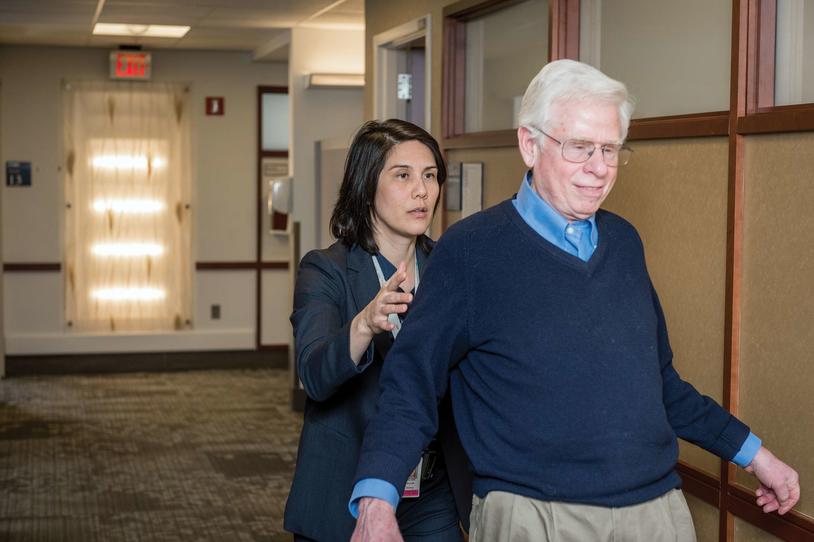
The following story appeared in our Fall/Winter 2020 edition of The Fox Focus on Parkinson’s newsletter. For this story and more, download the full edition.
“Walking through molasses.” These three words best answered the question, “How do you define fatigue?” to one person living with Parkinson’s. “Overwhelmed” described the emotional fatigue several individuals felt. It’s clear that people and families with Parkinson’s disease have developed a highly personal and in some cases, quirky lexicon of terms they use to describe their symptoms.
“Doctors, researchers and patients often use a different vocabulary to describe symptoms and disease,” said Rachel Dolhun, MD, vice president of medical communications at The Michael J. Fox Foundation (MJFF). “A clearer understanding of how people living with Parkinson’s experience their symptoms can lead to better conversations, care and research.”
In 2018, MJFF funded a study to explore how people with Parkinson’s talk about their disease. Understanding patients’ descriptions of these bothersome symptoms can lead to better conversations, tools and care and may help inform trial design, getting us to new treatments faster.
The study included telephone interviews and online journaling which then informed a survey deployed through Fox Insight, MJFF’s online clinical study. Fox Insight participants help advance researchers’ understanding of Parkinson’s by completing surveys about symptoms, lifestyle and other topics relevant to the disease.
Study findings showed that people with Parkinson’s described symptoms and experiences in unique and individualized ways and had different triggers and coping strategies. When talking about “off” time, people with Parkinson’s used metaphors such as “out of gas,” “my zombie state,” or “walking through mud,” and the most common triggers were stress and anxiety. And nearly half described bothersome symptoms that would be missed by standard questionnaires conducted by doctors.
The three most common of these were freezing of gait, apathy and memory problems.
While fatigue is primarily measured as a physical symptom in the doctor’s office, our Fox Insight survey showed that people with Parkinson’s experienced its cognitive and emotional impact as well. For example, some participants reported feeling overwhelmed (like everything requires a lot of effort), while others reported not wanting to do anything or feeling isolated. And while many reported exercise as a trigger for fatigue, nearly half reported that physical activity improved their fatigue. Other triggers were poor sleep and a busy schedule and participants managed fatigue by sitting quietly (e.g., watching television, listening to music, reading), laying down and sleeping.
The study points to the importance of hearing directly from people who live with Parkinson’s and the need for open and ongoing dialogue with doctors and researchers, as well as a need for more comprehensive tools to measure symptoms.
More analyses continue to emerge from the study, which was supported by the Parkinson’s Disease Education Consortium, an alliance of biotechnology and pharmaceutical firms that share MJFF’s commitment to furnishing high-quality educational resources for the Parkinson’s community.
You can move the Foundation’s research mission forward remotely from home. Learn more and register for MJFF’s online clinical study Fox Insight at foxinsight.org.
